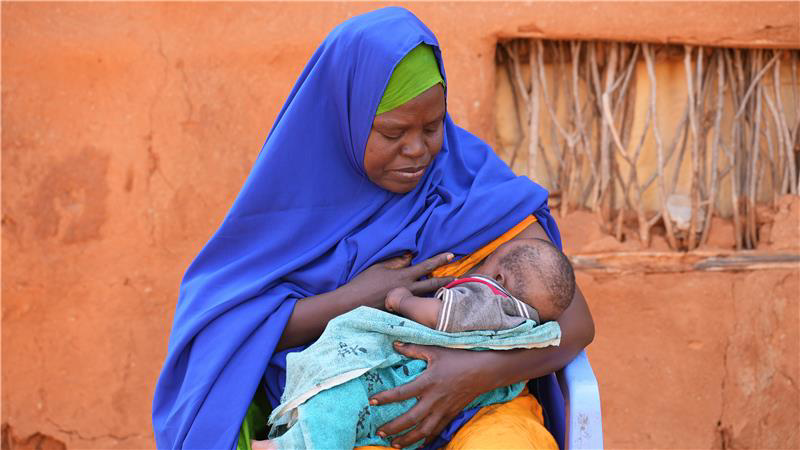While studying at the University, I conducted field research in Mandera County, where I had the opportunity to interact closely with breastfeeding mothers. I collaborated with one woman who had three children. She had exclusively breastfed one of them and used her experience as evidence to show other mothers that the breastfed child had fewer hospital visits compared to the others. Her real-life example offered convincing proof of the benefits of exclusive breastfeeding. That encounter inspired me to focus my final-year dissertation on the challenges of breastfeeding.
In my research, I showed that giving babies other foods or drinks (pre lacteal feeding) before breastfeeding is not needed, and that breast milk can and should be a baby’s first and only food. I learned how breastfeeding reduces hospital visits, lays a strong foundation for a baby’s development, and supports healthy growth. From that point on, I knew I wanted to dedicate myself to supporting mothers in this journey. For the past ten years, I have been actively promoting breastfeeding, and I tell every mother I meet: breastfeeding is the best for both babies and mothers.
First, exclusive breastfeeding strengthens a baby’s immune system, protects against illness, and fosters a strong bond between mother and child; something that also supports emotional and social development later in life.
Second, breastfeeding is cost-effective especially when compared to formula or other foods or drinks, which can be very expensive. I remember during the 2017 drought, when food was scarce, I used that moment to encourage families to move away from starting newborns to other feeding. I advised mothers to prioritize their own nutrition and reminded them that by feeding well themselves, their bodies could still produce breast milk; something they already had and that their babies needed most.
And third, breastfeeding is natural and accessible. With basic hygiene practices like handwashing and keeping the breast clean, it is a safe and simple way to feed a baby.
In Somali culture, several myths persist, and mothers often play a key role in changing this myth. One common belief is that breast milk is too hot and might “burn” the baby’s system. I explain to mothers that breast milk is at body temperature, warm, but never harmful.
Another myth is that newborns need pre lacteal feeding right after birth to get used to food. Truth is that breast milk alone is sufficient. As MSF we use scientific, evidence-based messaging to dispel this. Babies don’t need other foods or drinks, just time and patience. The milk may not come out immediately, but even small amounts are enough at first. Babies are born with nutritional reserves from their mothers that help them transition in those first few hours. The key is to initiate breastfeeding early and often this naturally increases milk production.
Good nutrition for the mother is also essential to sustain breastfeeding. So is psychosocial support. Mental well-being plays a role in a mother’s ability to breastfeed successfully. We also remind mothers to breastfeed on demand. When the baby cries, that is usually a signal they need to feed. These are the basics we teach all mothers in our program at MSF Dagahaley project.
Food insecurity, cultural pressures, mental stress, and lack of support are some of the challenges that lactating mothers face in the camp. Nutritional challenges make it difficult for mothers to maintain milk supply. Stress, especially in a refugee setting, can also interfere with breastfeeding. Without adequate food supply, and lack of supportive environment it is hard for mothers to exclusive breastfeed for 6 months. That is why our work as MSF in Dagahaley focuses not only on counseling mothers, but also on addressing their broader needs such as nutrition, mental health, and community support.
I am a father of four, and in our household, we exclusively breastfed all our children. I supported my wife throughout that process, so I know firsthand how critical support is. Breastfeeding is not something a mother should have to manage alone. While it is a personal decision, its success depends heavily on collective support.
To breastfeed successfully, mothers need encouragement and practical help from their husbands, the wider community, and healthcare workers. It is not just about promoting breastfeeding; it is about creating an environment where mothers feel empowered and supported at every step.
During this World Breastfeeding Week, the focus is to priorities breastfeeding, create sustainable support systems. With fathers playing an active role and continued investment and commitment from organisations like MSF, I am hopeful that more mothers and babies will be able to implement and experience the full benefits of exclusive breastfeeding.


